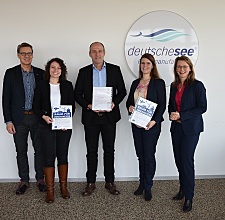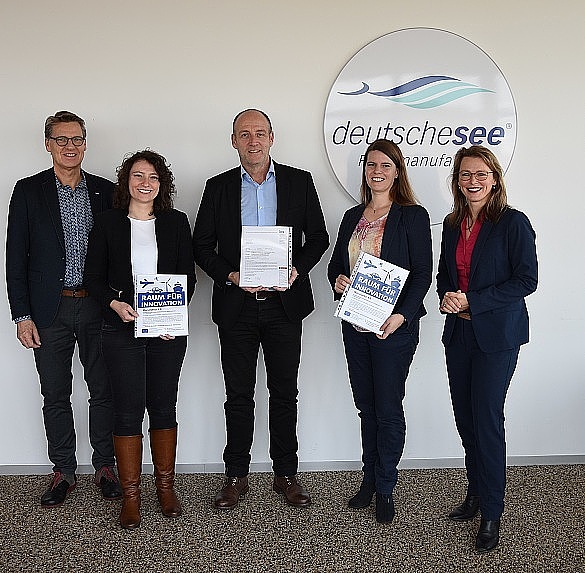Sustainability in production of delicacies

The quality fish processor Deutsche See GmbH, one of the largest food companies in Bremerhaven, still makes its delicacies by hand.
The collaborative project entitled Manufaktur 4.0 is researching the extent to which digital processes can make the production of delicacies more sustainable and less resource-intensive.
The quality fish processor Deutsche See GmbH, one of the largest food companies in Bremerhaven, still makes its delicacies by hand.

The Bremerhaven-based quality fish processor is the national market leader in the processing and marketing of fish and seafood. It supplies more than 35,000 clients in the food retail and catering sector. One of the hallmarks of the company is that the sustainability principle runs through the entire value chain: from stock-preserving fishing to resource-conserving processing and climate-neutral transportation.
For example, the vehicle fleet consists of low-emission trucks, and the refrigerated trailers are CFC-free. The company buildings have heat recovery systems and energy-efficient refrigeration technology. As a result, Deutsche See GmbH was designated Germany’s most sustainable company in 2010. Deutsche See GmbH has been a member of the Environment Companies Partnership since February 2012, and was designated a Climate-Friendly Business by Bremen’s environment agency in 2015.
At the quality fish processor, the freshly delivered unprocessed fish and seafood undergoes a detailed quality check and is then passed straight on to the production process, where delicacies are made by hand in line with prescribed recipes. Artificial intelligence is to deliver digital production control which maintains consistent levels of quality. These include standards for incoming goods, the addition of ingredients, and the individual processing of different qualities.
In cooperation with the University of Applied Sciences and BIBA, a digital twin of the delicacies production process is being created. Parameters like quantities, raw materials, recipes, sensory factors and many more are registered and processed using artificial intelligence. In this way, the individual production run can be simulated in advance. In addition to the maintenance of quality, the research project particularly aims to conserve resources. For example, the digital control permits more precise planning of the necessary quantities of raw materials and of the logistics. If there is a precise prediction of how much fish is needed and has to be refrigerated, less waste will arise. Also, the energy consumption in the company is transparent, easier to plan, and can be reduced.

This project focus on innovation an is supported by our heroine Felicia